AI answering service for real estate that answers calls 24/7, captures and qualifies leads, and helps realtors respond faster with an AI receptionist.
AI Answering Service for Real Estate That Captures Every Lead
Call our AnswerBug Demo to speak to our AI Receptionist for more info: 972-944-0311
✓ Free Trial ✓ No Credit Card Required ✓ Phone Support Included
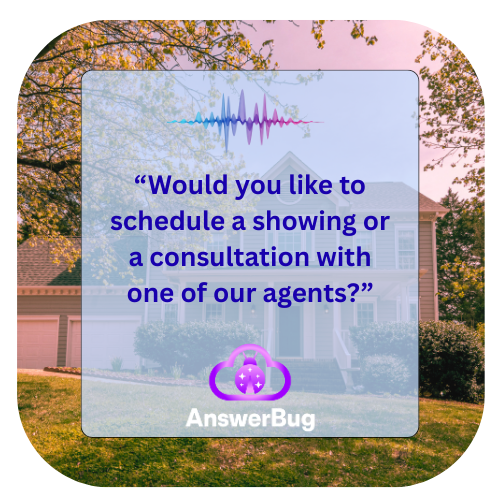
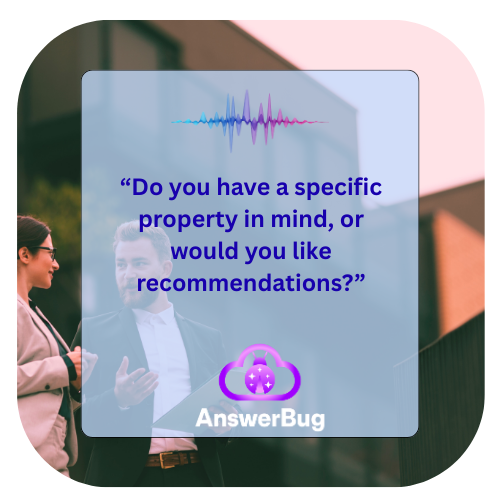
0
%
Average Missed Call Rate
For real estate professionals
0
%
Win Rate
When real estate calls are answered live
Inquiries frequently come in after hours, during weekends, or while agents are in showings or meetings.
Unanswered calls result in lost listings, missed showings, and fewer closed transactions over time.
Missed Real Estate Calls Mean Missed Buyers and Sellers
In real estate, timing is everything. Buyers and sellers often reach out to multiple agents at once, and the first person who responds usually earns the conversation and the opportunity. When a call goes unanswered, that lead rarely waits for a callback and instead moves on to another agent who picks up right away. An AI answering service for real estate ensures every inquiry is handled instantly so no opportunity slips by unnoticed.
An AI receptionist for realtors responds immediately, gathers key details like buying or selling intent, preferred location, timeline, and budget range, and routes the inquiry appropriately. Whether the caller is interested in a specific listing, requesting a showing, or looking for general guidance, the AI captures the information needed to move the lead forward. This allows agents to follow up faster and focus their time on high-intent prospects instead of chasing missed calls.
Why missed calls hurt real estate professionals
Buyers and sellers often contact multiple agents and typically choose the first one who responds live.
AnswerBug Prevents Missed Calls from Turning Into Lost Deals
In real estate, unanswered calls don’t just mean delayed responses, they mean missed buyers, lost sellers, and opportunities that never come back. Prospective clients often reach out while browsing listings, touring neighborhoods, or making time-sensitive decisions, and they expect immediate answers. If no one picks up, they rarely wait and usually contact another agent who does. AnswerBug ensures every inbound call is handled right away so serious prospects are engaged while interest is highest.
AnswerBug’s AI receptionist for real estate gathers essential details during the first conversation, such as whether the caller is buying or selling, the property or area they’re interested in, timeline, and preferred contact method. It can send follow-up texts or emails with listing information, next steps, or scheduling options, keeping the conversation moving even when agents are unavailable. This creates a smoother experience for prospects while giving agents cleaner, more actionable leads.
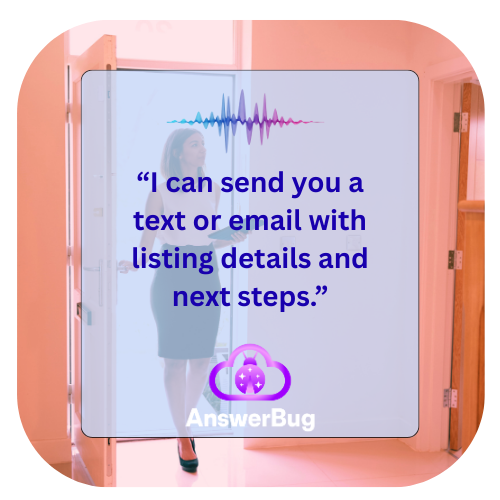
- Responds instantly to buyer and seller inquiries at any hour, including evenings and weekends when many leads come in.
- Collects and organizes lead details so agents can follow up prepared and focused on closing.
- Reduces interruptions during showings and meetings while maintaining a professional, responsive first impression.
How Much Revenue Are Missed Calls Costing Your Real Estate Business?
In real estate, timing is everything. Buyers call when they’re actively browsing listings, and sellers reach out when they’re deciding who to trust with one of their biggest assets. If that call goes unanswered, the moment is gone and the conversation usually happens with another agent who picked up first. Missed calls don’t just delay deals, they quietly erase them.
The Missed Call Calculator helps you put real numbers behind those lost opportunities. By entering how many calls your team misses in an average week, along with your typical commission or revenue per closed transaction, you can see how much potential income slips away over time. The calculator factors in realistic close rates, since not every caller converts, and shows what those missed conversations add up to monthly and annually.
In just a few seconds, you’ll get a clear picture of how improving call coverage with an AI answering service for real estate can directly increase showings booked, listings captured, and deals closed. It turns missed calls into a measurable business problem, and shows exactly how much growth is possible when every inquiry gets answered promptly instead of sent to voicemail.
Missed Call Calculator
Calculate the true cost of every call that goes to voicemail.
$
Conservative (10%)
Aggressive (100%)
*This assumes not every caller becomes a customer. Adjust based on your team's sales performance.
Potential Lost Revenue (Yearly)
$78,000
That's $6,500 lost every month
The Benefits of an AI Answering Service for Real Estate
Real estate is a speed game. Buyers, sellers, and renters usually contact multiple agents and they move forward with whoever responds first and sounds the most helpful. The problem is that calls come in while you’re driving, in a showing, negotiating, or with another client, so even great agents miss opportunities. An AI answering service for real estate makes sure every inquiry is answered instantly, details are captured correctly, and the lead is routed to the right next step.
Always Available for New Leads
Real estate calls do not stop at 5 PM, and many of the best leads happen after work or on weekends. An AI receptionist answers every call immediately so prospects never hit voicemail. It keeps the conversation warm by acknowledging urgency and offering a clear next step. That consistent availability helps you win conversations you would have otherwise missed.
Faster Showing and Consultation Scheduling
Speed matters most when a buyer is actively looking at listings and deciding who to work with. AI can gather key info and move the caller toward booking a showing or a quick consult without waiting for a callback. This reduces lead drop-off that happens when someone “just calls another agent.” It also keeps your calendar filled with higher-intent conversations instead of vague follow-ups.
Handles Multiple Inquiries at the Same Time
A new listing, open house weekend, or a strong ad campaign can trigger a wave of calls all at once. An AI answering service can speak with multiple callers simultaneously without hold times or busy signals. Every lead gets a professional first response, even when you’re already on the phone. That protects your marketing spend and prevents hot leads from slipping away.
Less Busywork, Cleaner Lead Notes
Missed call follow ups usually mean a lot of back-and-forth just to figure out what the person wants. AI intake captures the essentials upfront, like buying vs selling, location, timeline, price range, and preferred contact method. You receive organized notes that make it easy to prioritize the best opportunities quickly. This reduces manual admin work and helps you follow up with confidence.
Lower Staffing Pressure Without Losing Coverage
Not every agent or brokerage wants to hire an assistant just to keep up with phones. AI provides reliable call handling without adding payroll, scheduling headaches, or training time. As your lead volume grows, the AI scales with you automatically. You get consistent coverage while keeping overhead under control.
Better First Impressions That Build Trust
When someone reaches out about a home, they want clarity and reassurance fast. AI delivers a calm, consistent experience with clear answers and a professional tone every time. Prospects feel taken seriously from the first interaction, even if you’re unavailable. That stronger first impression often leads to more booked appointments and more signed clients.
Work With UsFeatures: AnswerBug AI Virtual Receptionist for Realtors
AnswerBug can do more than just answer basic questions. Here are a few of the features that empower your AI answering service
for real estate companies to deliver a professional experience and convert more callers into closed homes.
Made for Handling Real Estate Calls
An AI answering service for real estate professionals is designed around speed, responsiveness, and lead qualification, where every missed call can mean a lost showing or listing. Buyers, sellers, and renters often contact multiple agents at once, and they tend to move forward with whoever responds first. An AI receptionist for real estate ensures every inquiry is answered immediately, capturing intent while interest is highest and before prospects move on. This keeps opportunities alive even when agents are in meetings, showings, or out of the office.
Instead of generic call handling, the system follows real estate–specific workflows that collect critical details such as buying vs. selling intent, desired location, price range, timeline, and contact information. Calls are categorized and routed based on urgency, helping agents prioritize serious prospects without manual screening. According to insights shared by platforms like CallRail, response speed plays a major role in real estate lead conversion, especially for inbound listing and buyer inquiries. By handling intake in real time, agents stay focused on closing deals rather than chasing callbacks.
Real-time appointment scheduling allows property showings, consultations, or listing calls to be booked during the initial conversation, not hours later. Automated confirmations via text or email reduce no-shows and keep prospects engaged with clear next steps. As call volume increases from online listings, ads, or seasonal market shifts, the AI receptionist scales instantly without missed calls or hold times. The result is a more responsive real estate operation that protects lead value, improves conversion rates, and supports growth without adding administrative overhead.
By integrating seamlessly with modern real estate CRMs and lead sources, an AI answering service for real estate helps ensure no inquiry ever slips through the cracks. Calls generated from online listings, paid ads, or platforms like Zillow Premier Agent are answered instantly, giving agents a critical speed advantage when competition is highest. Detailed call summaries and captured lead data sync cleanly with tools agents already rely on, such as Follow Up Boss, making follow-up faster and more organized. This creates a smoother experience for prospects while giving agents clearer visibility into which opportunities deserve immediate attention.
Frequently Asked Questions
An AI answering service for real estate is a virtual receptionist that answers inbound calls from buyers, sellers, and renters automatically. It greets callers, asks qualifying questions, captures contact details, and routes or schedules next steps. This ensures every inquiry is handled instantly, even when agents are unavailable. The result is fewer missed opportunities and faster lead response times.
Speed is critical in real estate, and most prospects contact multiple agents at once. An AI receptionist for real estate answers immediately, making your business the first to respond. It collects key details like budget, location, and timeline so agents can follow up prepared. This increases the likelihood of booking showings and listing appointments.
Yes, AI answering services for realtors can follow different call flows depending on the caller’s needs. Buyer inquiries can be qualified by price range, desired neighborhoods, and urgency. Seller calls can capture property details, motivation, and timeline. This allows agents to prioritize high-value opportunities quickly.
An AI receptionist for real estate can book appointments directly using your calendar rules. It confirms availability, sends automated confirmations, and reduces back-and-forth with prospects. This helps agents lock in meetings faster and reduces no-shows. Appointments can be booked 24/7 without staff involvement.
Unlike a human receptionist, an AI answering service for real estate can handle unlimited simultaneous calls. No caller is placed on hold or sent to voicemail during peak hours. Every prospect receives immediate attention. This is especially valuable during new listing launches or ad campaigns.
Yes, after a call, the AI can automatically send texts or emails with next steps. This may include listing details, showing confirmations, or agent contact information. Automated follow-ups help keep prospects engaged while agents focus on closing deals. It also adds a professional, polished touch to every interaction.
No, it enhances your team rather than replacing it. The AI handles initial call intake and qualification so agents can focus on high-value conversations. It reduces interruptions during showings and negotiations. This leads to better time management and higher productivity across your team.
Yes, reputable AI answering services are designed with data security and privacy in mind. Caller information is captured securely and shared only with authorized team members. This protects client data while maintaining compliance with industry best practices. Your leads and conversations remain confidential.
Solo agents, busy teams, and growing brokerages all benefit from AI call handling. It’s especially valuable for agents running online ads, managing multiple listings, or working after hours. Any real estate professional who wants faster response times and fewer missed leads will see immediate value. The service scales as your business grows without adding staff.
Affordable pricing for your Real Estate Company
Starter
For small businesses that need help handling phone calls.
$49
Per month includes 200 minutes
- Customized AI Receptionist
- FAQs & Knowledge Base
- Message Taking
- SMS Appointment Links
- Email & SMS Notifications
Pro
For growing businesses looking for more advanced AI features.
$99
Per month includes 500 minutes
- Everything in Basic
- Call Transfers
- Advanced Texting
- Integrations
- Manage Multiple AI Receptionists (add on)
Easy Setup
Create your AI Answering Service For Realtors
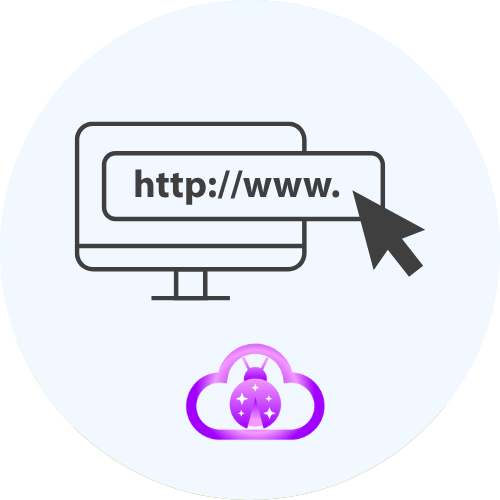
01
Create Your Account
Add your website and training material and AnswerBug AI immediately starts training on your firm.
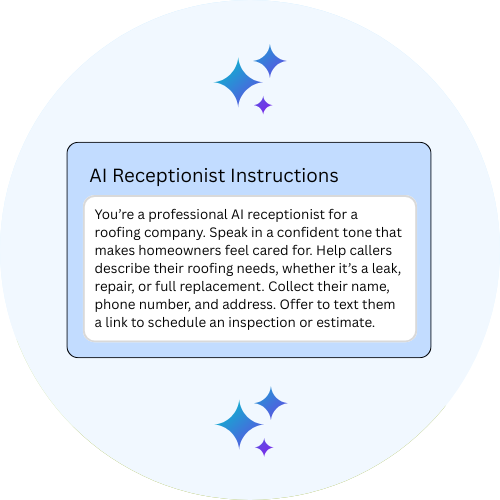
02
Tweak Your Instructions
Add a greeting, commonly asked questions, and custom instructions for alerts, texting, call transfers, and appointment scheduling.
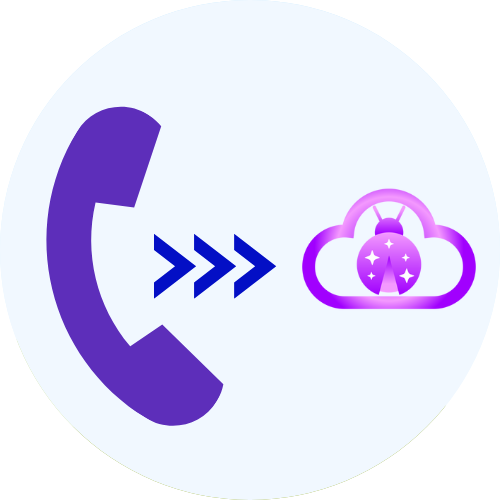
03
Forward Your Calls
Setup call forwarding or VOIP rules for when AnswerBug should answer your calls. (such as after 3 rings, after-hours, etc)




















